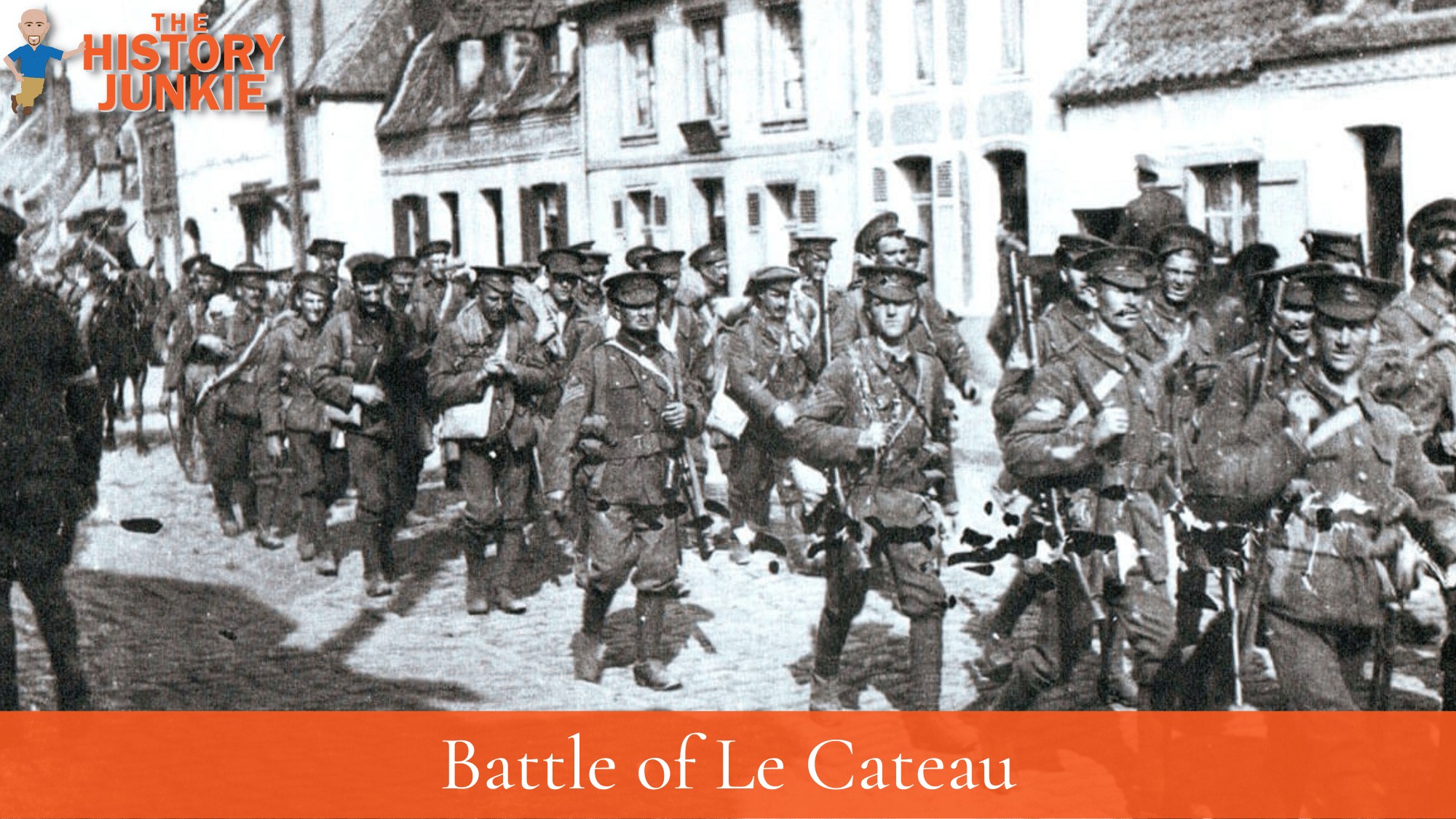The Battle of Le Cateau was essentially a rearguard action fought by the British in late August 1914 during the general Allied retreat along the Western Front in the face of sustained German successes at the four Battles of the Frontiers.

On the night of August 25, General Smith-Dorrien’s II Corps was pursued near Le Cateau by the German First Army under General von Kluck.
With his three divisions, plus a small cavalry corps, separated from Haig's I Corps eight miles to the east at Landrecies and furthermore finding himself unable to retreat without coming under attack anyway, Smith-Dorrien decided to fight an action the following morning.

The greatly fatigued condition of his troops - they had been fighting a retreat for several days by this stage - convinced Smith-Dorrien that psychologically, as well as tactically, a fighting stance was appropriate.
However, the BEF's Commander-in-Chief, Sir John French, had specifically ordered a continued retreat on the evening of August 25 and, despite the relative success of the action, resented Smith-Dorrien's decision to fight.
An acrimonious argument sprang up between the two men, ultimately leading to Smith-Dorrien's removal from command under the pretext of ill health.
British Defense
Fortunately for Smith-Dorrien, only three divisions of the German First Army were available to conduct the fight. Von Kluck himself, together with his Eastern Corps, was too far from the area to assist.
Instead, two western corps were dispatched in an unsuccessful attempt to outflank the BEF (prevented from doing so by the French Sixth Army under General Maunoury).
German artillery began the action at dawn the next day, August 26, across the eight miles of essentially open ground held by Smith-Dorrien's forces.
The barrage continued until noon before German infantry began to advance.
Fighting predominantly with rifles fired from shallow trenches prepared hastily (a tactic similarly employed with great success at Mons), the British managed to greatly slow the advance of the German infantry to the extent that Smith-Dorrien was able to organize a strategic retreat during the late afternoon despite overwhelming odds and in the absence of flank protection.
Losses, however, were high on both sides, including 7,812 British casualties.
Nevertheless, the German forces suffered losses not only in manpower but, crucially, in further delaying their planned advance on Paris.
